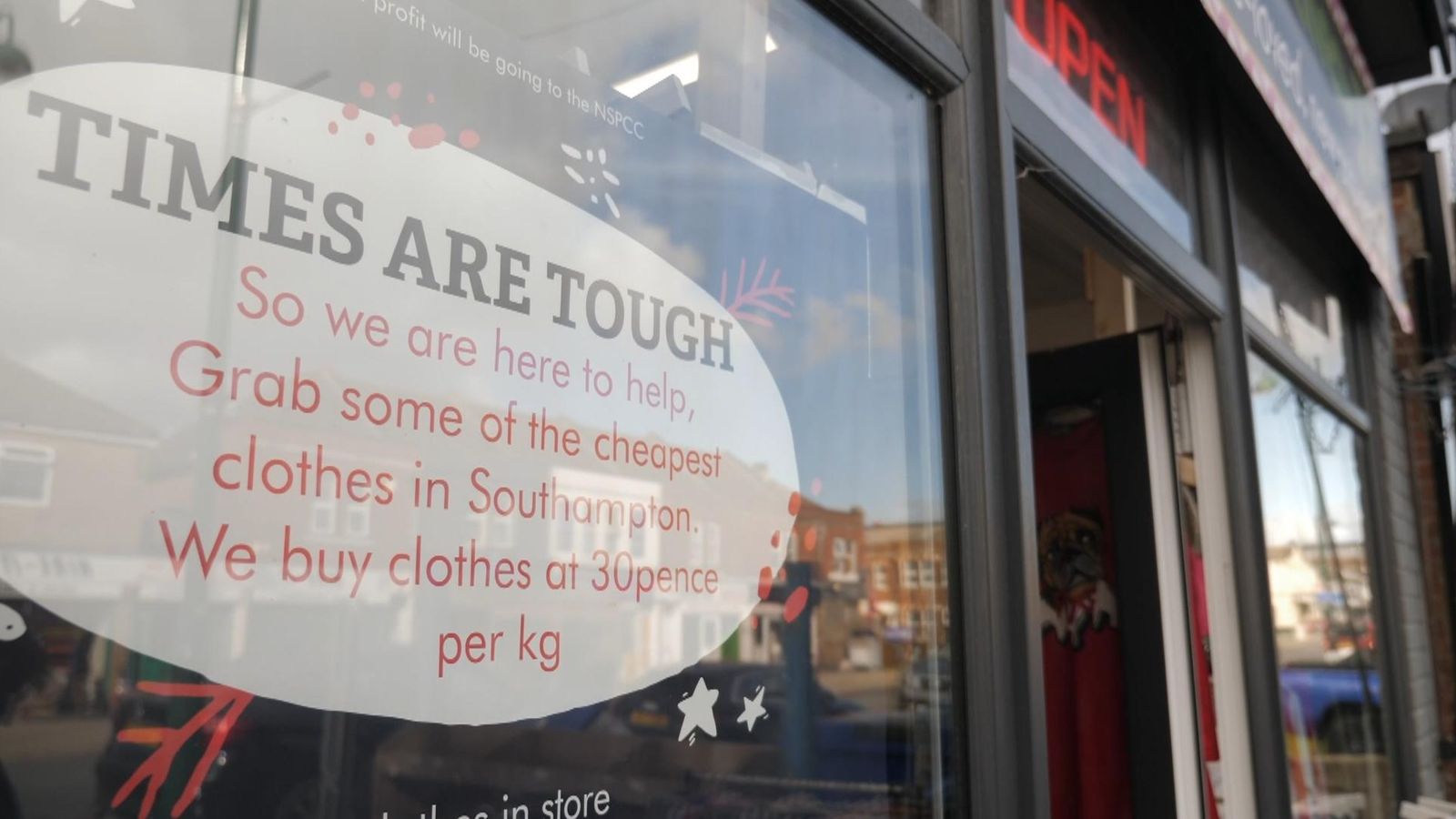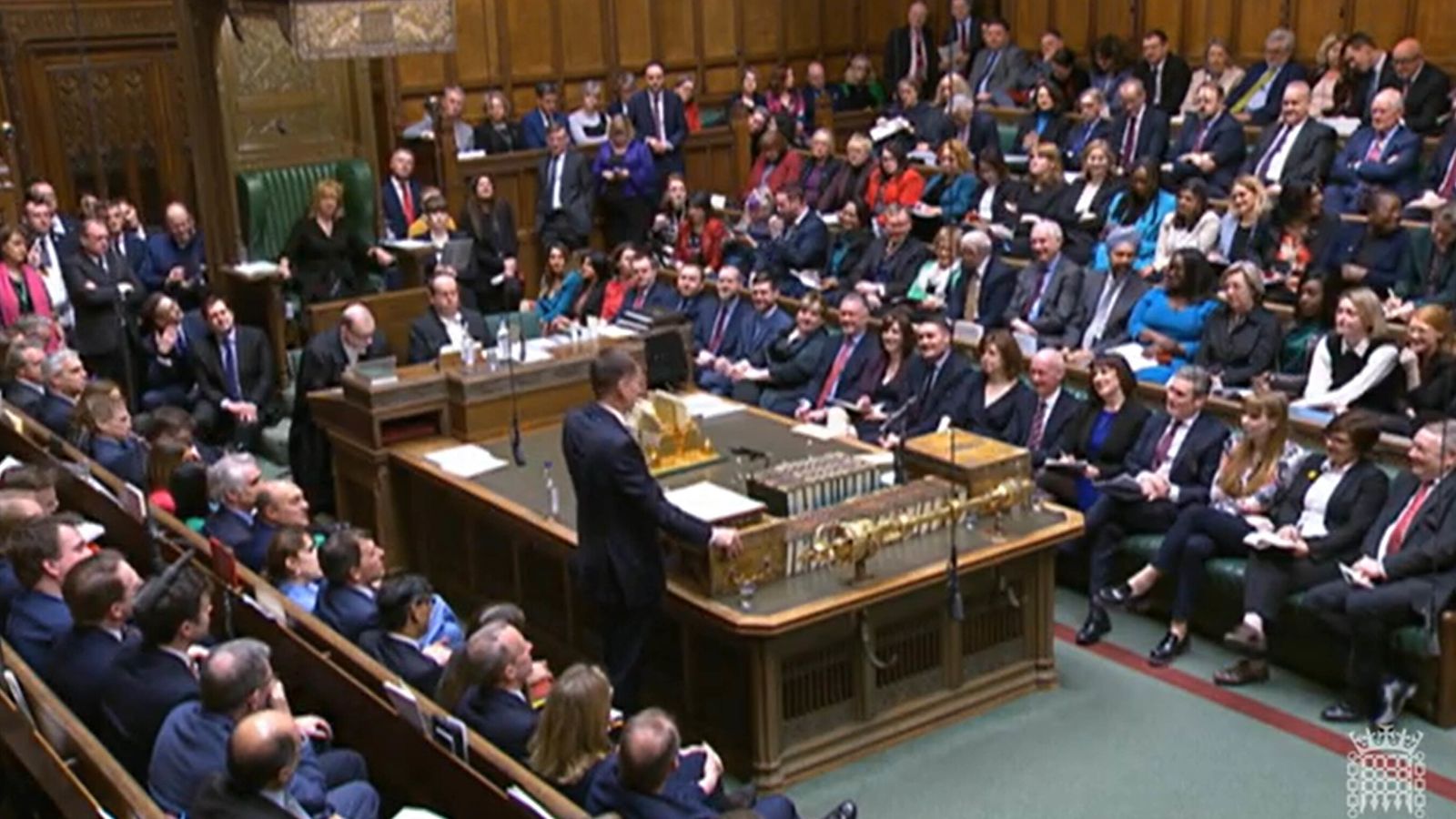The “vast majority” of households will receive £350 of help to take the “sting” out of rising energy bills, the chancellor has announced.
Rishi Sunak said 80% of all homes in England will get a £150 discount on their council tax bill in April, while all domestic electricity customers will get £200 in October off their energy bills.
The latter amount will be repaid over five years, starting from next April, although the council tax rebate will not need to be paid back.
Live updates and reaction as chancellor reveals measures to help with rising cost of living
This is aimed at limiting the effect of price rises in April, but the money will be recouped from consumers in the following years in equal £40 instalments so the loans can be paid back as energy prices fall.
Households in council tax bands A, B, C and D will be given a rebate funded by government grants.
Councils will also be given almost £150m to help lower income households who live in higher council tax properties and households in bands A to D who are exempt from paying council tax.
“Just as the government stood behind the British people through the pandemic, so we will help people deal with one of the biggest costs they now face: energy,” Mr Sunak said.
The announcements from the government represent a bid to help millions of households struggling with the increasing cost of living.
Energy bills continue to rise, with the regulator Ofgem confirming on Thursday that there will be a 54% rise in the price cap from 1 April to £1,971 due to soaring wholesale gas prices.
It means energy prices will rise by £693 a year for millions of households who are on their energy supplier’s default tariff.
Customers on prepayment meters will see the price cap increase by £708 to £2,017.
“Without government action, this could be incredibly tough for millions of hardworking families. So the government is going to step in to directly help people manage those extra costs,” the chancellor said.
Read more: What is the energy price cap and why will bills rise so sharply?
Mr Sunak ruled out cutting VAT on energy bills, saying such a move would “disproportionately benefit wealthier households” and become a “permanent government subsidy on everyone’s bills”.
As well as rising energy costs, households face pressures in other areas.
Also on Thursday, the Bank of England raised interest rates from 0.25% to 0.5%, the first back-to-back increase since 2004.
It means higher monthly payments for those on certain types of mortgages and comes amid rising inflation which is pushing up prices.
Households also face a 1.25 percentage point increase in National Insurance contributions from April.
The government has come under pressure to scrap the latter policy – which will generate revenue to tackle backlogs in the NHS and fund social care – but both the chancellor and Boris Johnson have said they are sticking to it.





